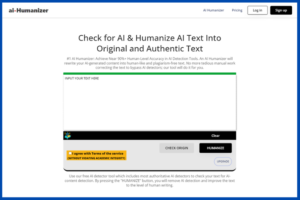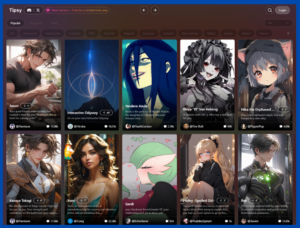Introduction
Google’s future focus is on leveraging AI to revolutionize operations. CEO Sundar Pichai’s memo emphasizes a 5-year commitment to exploring AI’s potential. Google aims to enhance products and services, creating intelligent user experiences. Key areas include AI-driven improvements in the search engine for more personalized results. Integration into platforms like Maps, Gmail, and Assistant aims to offer smarter features for seamless interactions. Google hopes to employ AI to tackle global issues related to healthcare, education, and climate change. They need to invest a lot of money on infrastructure, R&D, and hiring talent in order to meet these objectives. In the end, Google wants to lead the tech sector by utilizing AI’s revolutionary potential.

Google’s AI-driven roadmap for 2024
1. Setting the Standard for Responsible AI
- Google wants to lead the world in the development and application of trustworthy, safe, and responsible AI. This entails making its AI algorithms more transparent, encouraging moral decision-making, and reducing any potential biases.
- Anticipate additional projects in Google’s AI services and products that focus on explain ability, justice, and responsibility.
2. Expanding the Boundaries of AI Research
- Google is conducting cutting-edge research in fields including robotics, computer vision, and natural language processing. This could result in breakthroughs beyond existing capabilities in machine translation, picture recognition, and even AI-powered assistants.
- Keep an eye out for developments in fields like generative AI and multi-modal learning, where computers may mix data from several sources (text, image, and sound) to improve decision-making.
3. Integrating AI into Everything
- Google intends to integrate AI extensively into all of its services and products, including Maps, Search, and Pixel and Android smartphones. This might lead to more intelligent search results, more individualized experiences, and even AI-powered tools for developers and producers.
- Anticipate AI-powered features such as automatic data analysis in Google Sheets, predictive maintenance in Google Nest devices, and AI-powered recommendations on YouTube Music.
4. Building the Helpful Pixel Ecosystem
- With the goal of producing the most beneficial personal computers, Google is increasing the investment in its Pixel hardware line. This implies that with AI at their heart, Pixel laptops, smartphones, and even smart home appliances will grow even more clever and user-friendly.
- Future Pixel smartphones may include capabilities like AI-powered health monitoring, predictive battery management, and context-aware support.
5. Workforce Restructuring
- In an effort to better match its workforce with its ambitious aims, Google has announced job layoffs in certain sectors while hiring in others to support this AI-centric push.
- This change in strategy highlights the company’s dedication to funding its main areas of growth, which include AI research and development.
Challenges and Layoffs
Despite these ambitious goals, Google is not without its challenges. Recent layoffs, reportedly smaller than the previous year’s massive cutbacks, indicate the company’s need for efficiency. The internal memo from CEO Sundar Pichai emphasizes the necessity of “tough choices” to make room for strategic investments and improvements.
AI Race and Product Development
Google currently faces stiff competition in the AI race, trailing behind Microsoft and OpenAI in technology and deployment. Although attempts are in progress to incorporate artificial intelligence (AI) into current products, such business apps and Pixel smartphones, Google has not yet created a stand-alone AI solution that is on par with ChatGPT.
Although Bard, the company’s chatbot, is allegedly in development, it hasn’t yet attracted as many users as ChatGPT. The looming threat of AI spam also puts pressure on Google’s renowned search quality.
Cloud Business Dynamics
Google’s cloud business is grappling with the challenge of Microsoft’s rapid growth, fuelled by the collaboration with OpenAI. The cloud industry is seen as the next growth frontier, and Google’s need to catch up becomes evident in the face of these developments.
Conclusion
As Google sets its sights on a future dominated by advanced and responsible AI, the challenges it faces underscore the evolving nature of the tech landscape. The fusion of innovation, efficiency, and ethical considerations will determine Google’s success in achieving its ambitious goals in the dynamic realm of artificial intelligence.
Google’s emphasis on AI carries significant implications. It foresees a possible new era in technology, one in which artificial intelligence (AI) permeates every aspect of our existence and revolutionizes the ways in which we function, learn, and engage with the outside world. Google’s renewed commitment to ethical and responsible AI advancement puts the company at the forefront of technology development, even in the face of obstacles still standing in the way.
Stay tuned for further updates on Google’s AI journey in 2024 and beyond. This is just the beginning of a new chapter in the history of technology, driven by the ever-evolving power of artificial intelligence.
FAQs
1. What exactly does Google’s 5-year AI commitment entail?
Google aims to leverage AI’s potential to enhance its products and services, creating smarter user experiences. This includes improvements in Search, Maps, Gmail, and Assistant, along with tackling global issues like healthcare, education, and climate change.
2. How is Google setting the standard for responsible AI?
Google aspires to be a pioneer in creating and implementing safe, ethical, and dependable AI. This entails making algorithms more transparent, reducing the possibility of biases, and encouraging ethical decision-making across all AI applications.
3. What are some exciting areas of AI research Google is focusing on?
In domains like robotics, computer vision, and natural language processing, Google is setting new standards. Anticipate advances in image recognition, machine translation, intelligent assistants, and even generative AI, which can synthesize data from several sources to improve decision-making.
4. How will AI be integrated into Google’s products and services?
Anticipate AI-powered features like intelligent email recommendations in Gmail, predictive maintenance in smart devices, tailored search results, and even AI-powered creative tools for content developers and artists.
5. What is Google’s vision for the Pixel ecosystem with AI at its core?
Google wants to make the most useful laptops, smart home gadgets, and smartphones with Pixel technology. This could indicate that upcoming Pixel devices will have capabilities like AI-powered health monitoring, predictive battery management, and context-aware support.
6. Does Google’s AI focus mean job losses?
Yes, Google has announced some job cuts to align its workforce with its AI-driven goals. However, they are also hiring in key areas like AI research and development.
7. How is Google facing competition in the AI race?
In the AI space, companies such as Microsoft and OpenAI are fierce rivals. In order to develop standalone AI solutions that can compete with rivals like ChatGPT, Google needs to step up its efforts.
8. Is Google’s cloud business impacted by its AI focus?
Yes, Google needs to keep up with Microsoft’s explosive expansion in the cloud, especially considering their collaboration with OpenAI. Google’s ability to successfully integrate AI into its cloud solutions will be critical to its success in this space.
9. What are the potential challenges Google might face in its AI journey?
Among the main obstacles Google must overcome are ensuring ethical AI development, competing with other companies, and successfully integrating AI into a range of products and services.
10. What does Google’s AI focus signify for the future of technology?
Google’s dedication to artificial intelligence (AI) opens the door for a time when AI permeates every aspect of our lives, potentially changing the way we work, study, and engage with the world. But properly influencing this future will require ethical considerations and responsible development.




